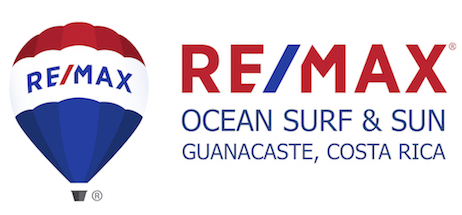You just moved to our beautiful country and you are finally ready to start your own business! Perhaps you spotted a lack of something in a community, such as a product or service that was not being provided yet? Just like in every other country, there are different rules and parameters that stipulate how foreigners may operate a business in Costa Rica legally. The most common business structure is with a working owner and one employee on payroll. It is important to remember that non-residents of Costa Rica are allowed to manage and own the business but not to perform any duties or tasks in the business.

Understanding employment laws in Costa Rica will save you a lot of time and energy. Per example, if you are not a legal permanent resident, you are prohibited to work in your business as a front-line person. For example, if you own a smoothie shop, you are entitled to hire, fire and train employees, but not make smoothies and sell them at the counter. This is a typical mistake foreigners have made for years in Costa Rica with the hopes of “not getting caught”. And, due to random immigration inspections they have had their businesses shut down and incurred penalties. It is mandatory to have at least one employee on "Seguro Social" (aka CAJA) in each business you operate. It is important to remember that if you are the owner of a business and an immigration agent stops by and catches you serving clients, you would then be at risk of deportation and other severe penalties. These employment laws, just like in every other country, are designed to ensure the rights of the working citizens and legal residents of Costa Rica. Here are the things to consider and steps to follow when a non-resident wants to start a business.
First: Form a Corporation
As in most places, operating a business as a corporation protects you personally from liabilities. Every country has different procedures, but if you are an American or Canadian this would be like an LLC, LTD or S.A. in North America. One advantage is that the process to form a corporation is faster and simpler than in other countries. A key element during this process is to find a trustworthy attorney to assist you through the process and ensure all the legal requirements are properly executed. The attorney will register the corporation for you, including the registration of shareholders with the Banco Central of Costa Rica.
Second: Secure your business license and permits
You will need to secure a business permit from the municipality where your business will be located. The cost for a business license varies from one province to another - paperwork requirements as well. If you plan to open a restaurant, bar or any type of business where you will serve food and alcohol, you will also need a health permit from the Ministry of Health, a permit to handle food, and also a liquor license. An attorney will be able to assist you with these steps.
Third: Hire at least one employee
You will need to hire at least one employee to work for you and register with Seguro Social (aka the CAJA or CCSS). The employee(s) must be hired full time. The employee(s) must fall into one of the following categories:
-
Costa Rican citizen
-
Legal permanent resident with right to work (Short/long term tourist visas do not count)
-
Possessing an annual work permit
 Your duties as an Employer
Your duties as an Employer
Once you have a staff hired for your business, it is important to acknowledge and understand your duties as an employer. Here are the most relevant employment laws related to employee benefit requirements:
-
Social security benefits: There are payments to be done to the Costa Rican Social Security Fund (CCSS, commonly called CAJA). The employee, as well as the employer, are both required to pay a percentage of their salary to the CAJA. These payments cover costs for healthcare coverage and retirement benefits. As of October 2019, employers are required to pay 26.33% of the gross salary while employees pay 9.34%, for a total of 37.67% paid monthly. The responsibility to collect the employee’s portion falls on the employer. Simple example: if your employee earns US $100, you will be paying US $35.67 to social security from which US $26.33 is your portion and $9.34 is the employee's portion. Some employers end up paying all of it for their employees as a bonus.
-
Vacation: All employees are entitled to a certain number of days vacation each year, depending on how much time they have worked for an employer. Specifically this is 2 weeks of paid vacation for every 50 consecutive weeks of work.
-
Aguinaldo: The aguinaldo is a Christmas bonus. The sum to be paid is calculated based on the employee’s monthly salary between the first day of December and the last day of November to complete a 12 month cycle. This bonus must be paid during the first 20 days of December.
Find out more about Seguro Social. Read the work code (Codigo de Trabajo) and reach out for reliable legal advisors to make sure you are complying. Ignorance will not keep you out of trouble. 
Fourth: Register your business with the Ministerio de Hacienda
Register (or ask a certified accountant to register) your business with Ministerio de Hacienda (equivalent of the IRS). Depending on your type of business, you may have to charge IVA (13% sales tax) and provide electronic invoices. You will also have to keep accurate books and make timely payments so your choice of accountant will be very important. You will have to send your incomes and expenses every month to that firm or accountant and pay a monthly fee to have it handled.
Fifth: Open a bank account
Choose a local bank that fits your business needs and open an account for your corporation. You will need some documents from your accountant, such as certification of incomes. It is always smarter to have a separate bank account under the name of your corporation so, if you get audited, transactions are easier to track down and there are less "gray areas" between your personal expenses and that of the business. It also makes it easier to qualify to process credit cards.
Let’s all embrace the system of the country where we are managing our businesses and respect the laws that protect its residents. By educating yourself and making sure you know what you are getting into, you will start off on the right foot and ensure your success from day one. If you have any doubts or questions, feel free to contact us!






